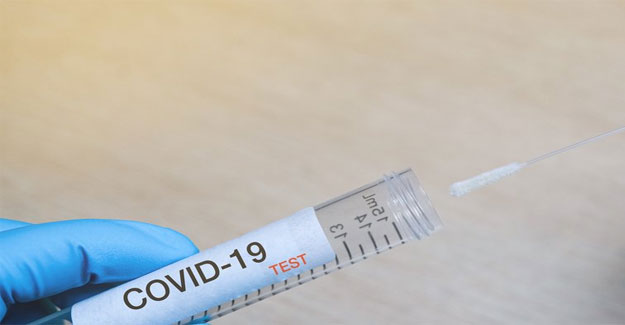
How India Got A Covid-19 Testing Swab In 10 Days At Unimaginably Low Cost
India has achieved a major milestone in its fight against Covid-19 as two large companies Reliance Industries Limited (RIL) and Johnson & Johnson collaborated as part of a social contract with National Institute of Virology and Textiles Ministry to get a Made in India testing swab in 10 days at 10% cost of what was being imported from China. This is the story of how the government and private sector have worked on a war footing for a breakthrough in a crucial testing input of nasal and throat swabs at affordable pricing, which were being imported from China until just 10 days back. This is seen as a major achievement for the Vocal for Local campaign announced by Prime Minister Narendra Modi. Textiles Minister Smriti Irani said in a tweet, "Government efforts, our industry's prowess have proved that our nation has capacity, ability to tide over every obstacle. India's success in the production of PPE, testing swabs has already put our nation on the path of ''Atmanirbhar Bharat'' as enunciated by PM @narendramodiJi". Varun Jhaveri, Officer on Special Duty, Ayushman Bharat said in a tweet, "We used to import collection swabs at Rs 17 from China. Government contacted the largest Indian polyester manufacturer to locally design swab. Got the design, material approved from NIV, gave manufacturing orders to MSMEs. Today, India manufactures these at Rs 2! Vocal for Local!" The ball was set rolling 10 days back for the indigenous project for nasal and throat swabs when Ravi Kapoor, Secretary, Textiles contacted J&J and RIL to check whether India can manufacture swabs required for testing purpose. The video conference was held between Ravi Kapoor and his team, J&J and their team and RIL officials. A question was raised whether in shortest time period such swab can be manufactured in India in required quantity. J&J already manufactures ear buds. It was also stated that Chinese swabs were costing Rs 17 and were difficult to get hence the need for local manufacturing of the swabs. They also contemplated if cotton could be replaced by polyester on the surface. RIL agreed to this requirement swiftly and sent polyester staple fibre to National Institute of Virology in Pune for testing. This was tested by NIV and the material was approved. However, more demanding requirements were on the anvil in this short journey. The J&J unit at Vasai which was manufacturing ear buds needed sliver made out of PSF to feed their automatic machines to manufacture these swabs. These slivers were made from PSF of 38mm usual cut length. This was done in the RIL RTG Patalganga having prototype machine to produce sliver. This sliver was sent to MSME at Vasai to try out on their automatic machines. Since machines to produce ear bud could accommodate cut length up to 25mm (cotton) this sliver supplied of 38mm fibre could not meet their requirement. Thereafter, RIL was asked to supply sliver to meet machine requirement. "Our scientists worked overnight on right type of PSF of cut length 22mm with change of certain characteristics to produce sliver to meet requirement of automatic machines. This was done within 12 hours from the intimation received," officials from RIL said. These sliver were approved and were suitable for this machine and sample was prepared to be sent to NIV for their final approval by J&J team and this was approved by NIV within 12 hours. It was also a challenge to move the cartons to Vasai plant in view of lockdown conditions. Special passes and other arrangements were made to move the material from PG to Vasai. The target of the exercise was to manufacture this swab at the lowest cost. The present cost of making the swab based on material supplied by RIL is in the range of Rs 1.70 to 1.75/swab, as against imported cost of Rs 17 a piece. Officials said this cost can be further brought down once the Vasai unit gets its new machine to accommodate longer stick rather than using adaptor which required manual intervention. Officials said this does not make commercial sense to make the swab but it is doing it in national interest. "This swab requires .03 grams of PSF/swab hence commercially does not make sense for RIL to get involved for such a small quantity. However, our commitment to India for providing swabs is the ultimate goal because without swabs no test could be carried out," RIL officials said. "We at RIL spent days and nights to provide sliver required for manufacturing swabs at Vasai with the help of J&J in shortest time period of eight days, which normally would have taken a few months to complete the project. We take pride to work for the nation's need rather than looking into commercial aspects," they added. "This is one of the targets for Make in India project rather than made for India project. This also eliminates some of the over-dependence on China for such critical items required for national interest. Our target will be to manufacture super speciality fibres required for defence and other critical end uses which are being imported and India is vulnerable for such imports and dictation from the supplier," they added.
Textile Excellence
If you wish to Subscribe to Textile Excellence Print Edition, kindly fill in the below form and we shall get back to you with details.













